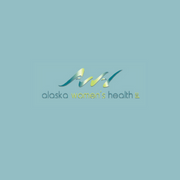3 Pressing Questions to Ask a Fertility Specialist

Whether you’re trying to have a baby now or you haven’t thought about parenthood yet, infertility is a topic you should know about. For instance, it’s helpful to understand the contributing factors so that you can plan your lifestyle accordingly. Below, Alaska Women’s Health PC in Anchorage shares a few questions they frequently receive to give you some insight into the condition.
Common Concerns About Infertility
1. How Do I Know if I’m Infertile?
Both women and men can be infertile, a condition caused by a myriad of factors. A fertility specialist will ask about your sexual and health histories and lifestyle choices. They will also test your hormone levels and assess your reproductive system to ascertain if your body is capable of fertilizing an egg or incubating a child. The Mayo Clinic recommends seeing a professional if you’ve been trying to have a baby for six months, are over the age of 35, or if you’re otherwise concerned, you may have infertility issues.
2. What Lifestyle Changes Affect Fertility?
 It’s common to wonder how you’re daily choices affect your ability to conceive. Being overweight can impact your hormone production and reduce your ovulation frequency which makes it more difficult to get pregnant. To that end, a healthy diet helps regulate your weight and hormones. Your sexual history can also contribute to infertility issues. If you’ve ever had an STI, for example, the infection may have damaged your reproductive organs and could affect your chances of having a baby.
It’s common to wonder how you’re daily choices affect your ability to conceive. Being overweight can impact your hormone production and reduce your ovulation frequency which makes it more difficult to get pregnant. To that end, a healthy diet helps regulate your weight and hormones. Your sexual history can also contribute to infertility issues. If you’ve ever had an STI, for example, the infection may have damaged your reproductive organs and could affect your chances of having a baby.
3. How Does Age Affect Infertility?
Women reach their most fertile age in their early to mid-twenties. Once they are 27 and older their likelihood of becoming pregnant decreases a bit more every year. This is why pregnant women ages 35 and older are considered high-risk. They attend more frequent appointments with their obstetricians to keep an eye on the health of the mother and baby.
It’s wise for men and women to understand how their choices today may impact their future goals. Age and lifestyle choices play a role in fertility, and anyone wondering whether they can have children should see a specialist for advice. To schedule an appointment with the compassionate, knowledgeable health care providers at Alaska Women’s Health PC, call (907) 563-7228 today. Visit the website for information about infertility treatments, as well as the other services they provide.
About the Business
Have a question? Ask the experts!
Send your question

